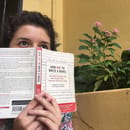The first time I became aware of microaggressions was in my high school History class. One of my classmates had used the term “negrito” to refer to a black person. My history teacher at the time, Mrs. Medina, interrupted them and asked: “Negrito? Is the person short or small?” There were a few seconds of hesitation and uncomfortable silence. When the classmate tried to dismiss the term, Mrs. Medina brought to our attention that the use of a diminutive can be disrespectful and degrading. Although back then I didn’t know exactly what was the term to call these small acts of racism in our daily communications, I later learned that the term for them is microaggressions.
Microaggressions are defined by Psychology Today as “the everyday verbal, nonverbal, and environmental slights, snubs, or insults, whether intentional or unintentional, which communicate hostile, derogatory, or negative messages to target persons based solely upon their marginalized group membership.” It might seem stupid to think that something like saying “ese negrito”, something you might hear or say every day can be problematic but the underlying context to the use of words implies that you think this person is lesser than you.
This doesn’t just apply to the use of the term negrito or negrita but also the use of the terms ‘pelo malo’ when people speak about textured hair. We can find it also in the whole discourse we hear our grandma’s or aunt’s talk about in whispers of ‘aclarar la raza’ when they speak about black marrying white people or ‘conservar la raza’ when they speak about white people marrying other white people. As if blackness has to be a thing to fix or erase.
Microaggressions are not exclusively verbal, they can also be actions. For example, usually when people spot a black person walking on the street the first reaction is to walk away from them because, whether consciously or unconsciously, there is an association between black people and crime. This also happens in trains, restaurants or supermarket aisle, people move away from black people because they fear something crime related will happen to them.
Many Puerto Ricans like to reassure that racism in our island doesn’t occur, but it does. And even larger scales within institutions like government and in college. For example, I can count on one hand the black professors I’ve had in my three years in my experience and the University of Puerto Rico. This University is supposedly one of the most diverse, especially the Río Piedras campus. One thing is for sure though, racism in our island can be spotted in many ways. And microaggressions are a part of our daily lives that often go unnoticed and help perpetuate it in a less conspicuous way.
Not many people want to talk about racism in our country because it makes them uncomfortable, and perhaps you feel uncomfortable right now too. Maybe even checking yourself to see if you have done or said something racist, or checking your love ones as well. It is important to educate oneself and those around you, because we can’t keep dividing us, perpetuating oppression and being silent about it. It is important to call out those who we understand are helping reinforce this toxic cycle, which is small step to make towards a whole system of oppression that took years to build and it is slowly being torn down, but hey, it’s a good place to start.

